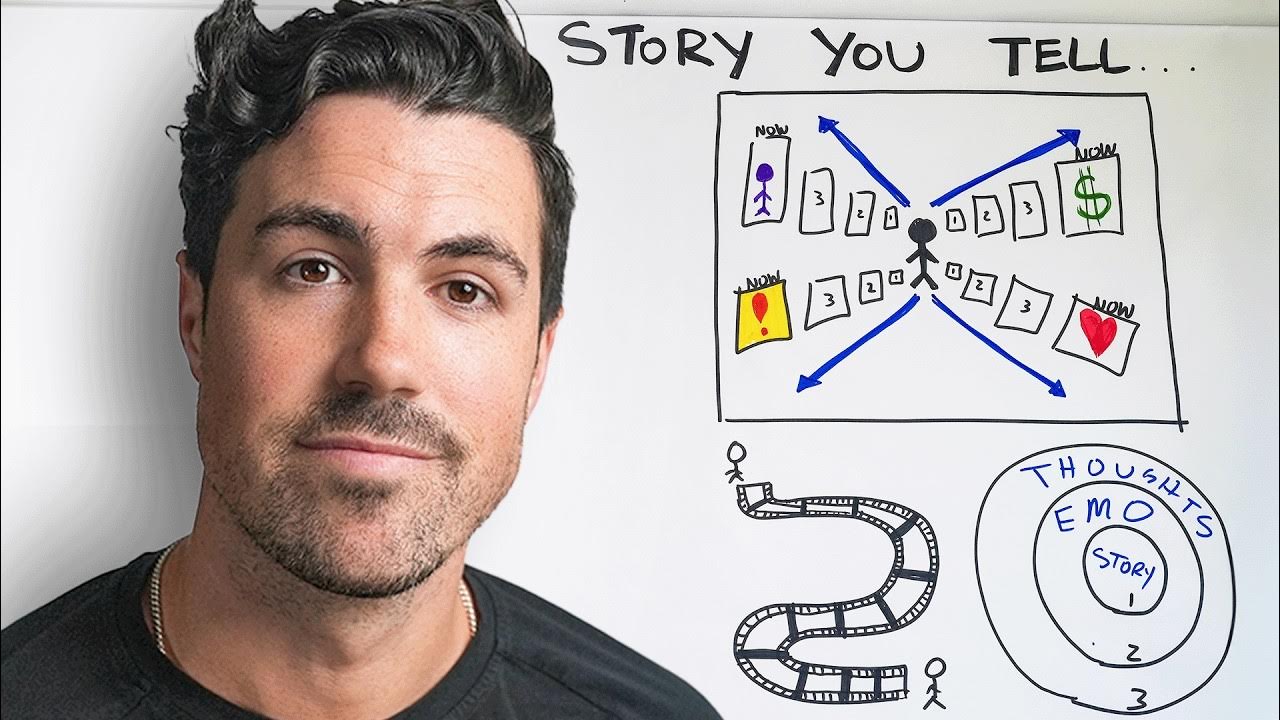How changing your story can change your life | Lori Gottlieb | TED
Summary
TLDRIn this insightful script, a therapist and advice columnist dives into the complexities of personal narratives, exploring how our stories shape our lives. Through the lens of a marriage in crisis, the speaker illustrates the power of editing our stories to alter our realities, emphasizing the importance of perspective and the courage to change. The talk encourages self-reflection, urging listeners to consider the stories they tell themselves and to embrace the freedom to revise them for a more fulfilling life.
Takeaways
- 📧 The speaker is a therapist who also writes an advice column, receiving personal letters from people worldwide with various issues.
- 💌 The speaker discusses the complexity of personal narratives, emphasizing that everyone is an unreliable narrator of their own life due to selective storytelling.
- 🤔 The speaker highlights the importance of considering multiple perspectives in a situation, as the truth often lies beyond a single person's story.
- 📚 Jerome Bruner's concept is mentioned, stating that storytelling inherently involves taking a moral stance, which influences how we perceive events.
- 🔄 The speaker argues that the way we narrate our lives has the power to shape our reality, suggesting that changing our stories can lead to changing our lives.
- ✂️ The speaker compares their role to an editor, helping people to revise their life stories to find clarity and new possibilities.
- 🔑 Two central themes in people's stories are identified: freedom and change, which often revolve around feeling trapped or desiring change without taking responsibility for it.
- 🕊️ Freedom is depicted as something that people feel they lack in the face of problems, despite often having more options than they realize.
- 🛠️ Change is portrayed as challenging because it involves loss and stepping into the unknown, but it's essential for personal growth and breaking free from old patterns.
- 👥 The speaker uses examples from letters to illustrate how different narrators can have vastly different perspectives on the same situation, affecting how they experience and respond to events.
- ✍️ The speaker encourages the audience to edit their own stories, considering alternative viewpoints and being open to the revisions that can lead to a more fulfilling life.
Q & A
What is the profession of the speaker in the script?
-The speaker is a therapist and also writes an advice column called 'Dear Therapist'.
What is the name of the folder where the speaker keeps the personal letters received?
-The speaker keeps the personal letters in a folder named 'The Problems of Living' on their laptop.
What is the main issue described by the woman in the first letter read by the speaker?
-The main issue is that the woman's husband has been having secretive late-night phone calls with a woman from his office, leading her to suspect an affair and causing her emotional distress.
Why does the speaker compare themselves to an editor when talking about their role as a therapist?
-The speaker compares themselves to an editor because their job involves helping people revise and edit the narratives of their lives, which can lead to positive changes.
What are the two key themes the speaker identifies in most people's stories?
-The two key themes are freedom and change.
What does the speaker mean by 'idiot compassion'?
-'Idiot compassion' refers to the act of going along with someone's story and agreeing with them without challenging potentially flawed perspectives or behaviors.
What is the term the speaker uses for the habit of giving advice outside one's knowledge or competence?
-The term is 'ultracrepidarianism'.
What is the main message the speaker wants to convey about the power of storytelling in our lives?
-The main message is that the way we narrate our lives has the power to shape our reality, and by changing our stories, we can change our lives.
What does the speaker suggest as a method to gain perspective on our own stories?
-The speaker suggests writing our stories from another person's point of view to gain a wider and more nuanced perspective.
What is the significance of the speaker mentioning that 'we're all going to die'?
-The significance is to remind people to take control of their life stories while they are still alive, shaping their narratives to be more heroic and less like victims.
How does the speaker describe the process of editing one's life story?
-The speaker describes it as a process of self-reflection and revision, where one identifies and challenges the supporting characters and plot points that may be upholding a negative or limiting narrative.
Outlines

This section is available to paid users only. Please upgrade to access this part.
Upgrade NowMindmap

This section is available to paid users only. Please upgrade to access this part.
Upgrade NowKeywords

This section is available to paid users only. Please upgrade to access this part.
Upgrade NowHighlights

This section is available to paid users only. Please upgrade to access this part.
Upgrade NowTranscripts

This section is available to paid users only. Please upgrade to access this part.
Upgrade NowBrowse More Related Video

Core Stories: The Most Underrated Way to Change Your Life (Identity Shifting)

“In the Beginning” and “Once upon a Time” - Dan P. McAdams at TEDxHendrixCollege

ಖಾಲಿ ಕೈ ಜೀವನ ಸಾಕು! | 7 Golden Rules to Save Money | Finance, Money | Masth Magaa | Amar Prasad

The Fundamental Difference Between Stories And Reality

Can we measure our own happiness? | Paul Dolan

The storytelling animal: Jonathan Gottschall at TEDxFurmanU
5.0 / 5 (0 votes)